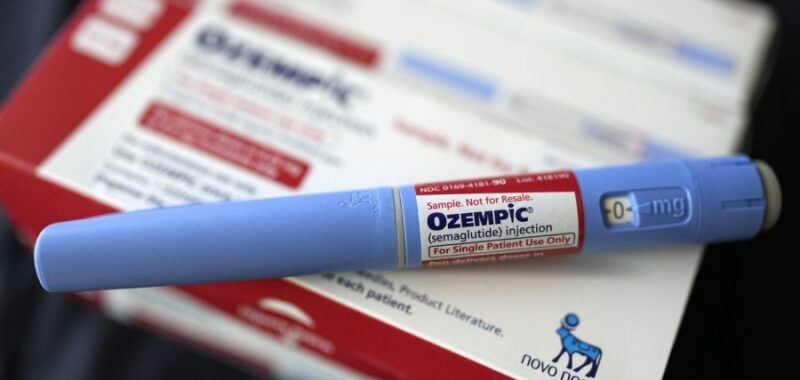
Weight loss medications such as Ozempic may be able to cut drug and alcohol abuse in half, according to a new study from the scientific journal Addiction.
The research, published Thursday, found that people who take Ozempic or similar drugs — those used for weight loss or treating Type 2 diabetes — were 40 percent less likely to overdose on opioids. The study also found that the same group had a 50 percent lower rate of alcohol intoxication.
Researchers from Loyola University Chicago studied more than 500,000 people who had a history of opioid use disorder. More than 8,000 of that sample used Ozempic — which contains the active ingredient semaglutide — or other weight loss drugs.
The study also looked at 800,000 people with a history of alcohol abuse. More than 5,600 of those participants were using weight loss drugs.
“Our study … reveals the possibilities of a novel therapeutic pathway in substance use treatment,” Fares Qeadan, the study lead researcher, and Ashlie McCunn and Benjamin Tingey, co-authors of the report, told The Wall Street Journal.
Another study released in July also found that Ozempic use was linked to lower risk for cognitive problems. Researchers said the results would not apply to those who do not have diabetes.
That research, conducted by the University of Oxford, discovered that Ozempic was associated with a lower risk of nicotine dependence and cognitive problems. The drugs did not increase the risk of anxiety, depression and dementia, according to the report.
“Our results suggest that semaglutide use could extend beyond managing diabetes, potentially offering unexpected benefits in the treatment and prevention of cognitive decline and substance misuse,” said Dr. Riccardo De Giorgi, the lead author of the Oxford study.
A survey from earlier this year from health policy nonprofit KFF found that 1 in 8 adults say they’ve taken a GLP-1 agonist, the obesity and diabetes medications that include Ozempic, Mounjaro and Zepbound.
Popularity of the medications have also led to warnings from the World Health Organization and Food and Drug Administration about potential fake versions of the drugs being detected in some countries.

